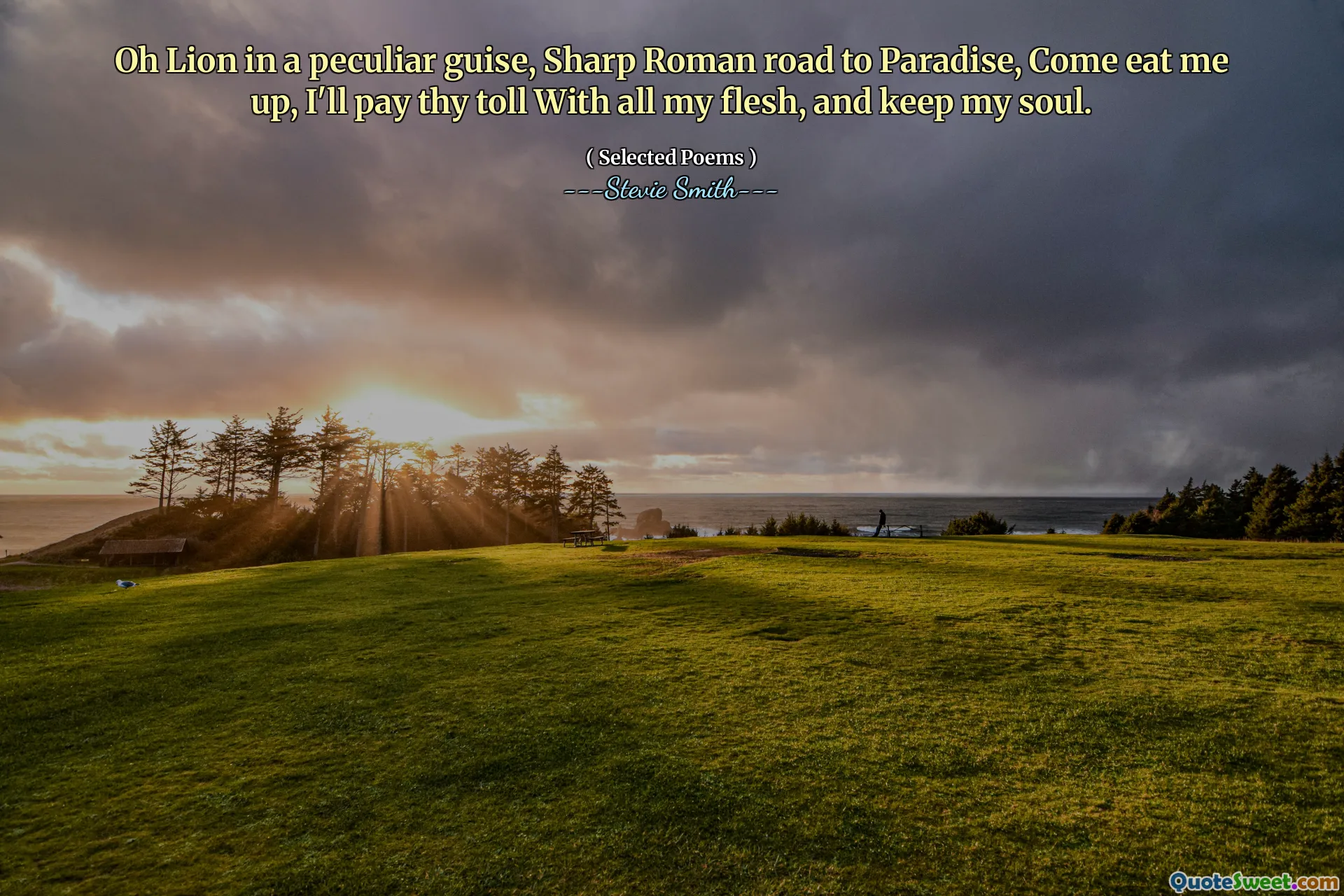
Oh Lion in a peculiar guise, Sharp Roman road to Paradise, Come eat me up, I'll pay thy toll With all my flesh, and keep my soul.
This evocative quote paints a vivid metaphorical landscape that invites contemplation on themes of sacrifice, transformation, and the confrontation between the primal and the divine. The lion, often symbolizing strength and raw power, is depicted here in a 'peculiar guise,' suggesting a disguised danger or an unexpected form of challenge. The 'sharp Roman road to Paradise' evokes an image of a difficult, perhaps morally intricate journey toward salvation or enlightenment—similar to ancient roads that led to significant destinations, but with a violent or torturous edge implied by the word 'sharp.' The plea to be consumed, with the willingness to pay the toll with all one's flesh and to keep the soul intact, speaks to a willingness to surrender one's physical existence or to face suffering for a higher spiritual purpose. It hints at the idea that true enlightenment or transcendence may require one's complete sacrifice, including one's mortal shell, while leaving the essential self— the soul—unscathed or even purified. This duality between material sacrifice and spiritual preservation underscores a profound understanding of the human condition: the necessity of confronting hardship or death to attain a higher state of being. The poetic language captures the paradoxical relationship between suffering and salvation, emphasizing that sometimes, true progress or enlightenment demands us to relinquish our fears and earthly attachments, trusting that our inner core remains untouchable. It is a powerful meditation on the costs of transcendence, resilience, and the raw honesty required to face life's ultimate tolls with courage and grace.

